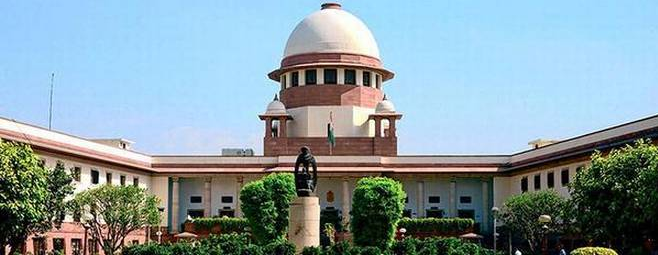SC partially releases ban, DELHI-NCR gets permission on construction activities.

On Monday, the Supreme Court permitted the construction activities in the Delhi-NCR area from 6 am to 6 pm, lifting partially its complete ban. The Apex Court reviewed the report of the Central Pollution Control Board (CPCB), which stated that construction works should not be allowed between 6 pm to 6 am.
Additional Solicitor General A N S Nadkarni has told a bench of Justices Arun Mishra and Deepak Gupta that the centre has created, on the Supreme Court’s guidance, a high-level committee to examine the use of technology such as smog towers to combat air pollution.
The Bench also instructed Uttar Pradesh, Punjab and Haryana governments to provide the updated stubble burning report until 11 December. The high court said that it would hear pollution-related issues on 16 December.
The court on 25 November directed the Center to form a high-level committee within three days for evaluating and implementing approaches for other pollution reduction technologies and said that a report on the issue should be sent to the Center within three weeks.
The Delhi Government has been asked to apprise them of the measures taken on the anti-smog gun, which sprays atomized water 50 meters into the air to reduce pollutants and also said to associate CPCB with the issue of anti-smog guns.
The court asked all states to explain in six weeks why they should not be liable to compensate people with poor air quality, claiming that they have a duty to provide citizens with basic civic services, clean air and drinking water.
It also released notices to all states seeking information, including air quality index (AQI), managing air quality and disposing of garbage.
The Court advised that the Center and the Delhi government sit and decide within 10days on the installation of Smog Towers in the NCR which would help combat air pollution. It said that “right to life of a human is being endangered” due to poor air quality and water pollution and the states need to resolve this as life span is being shortened.
The Apex Court also took exception to the fact that States and the Center ended up playing “blame game” on the crucial issue of air and water pollution and demanded that they work together for the wellbeing of the citizens.
The High court stressed the issue of “fearful diseases” such as cancer that a large section of people is suffering because of poor quality of air and water. It had said that only policymaking to tackle pollution was not sufficient, the real problem needs ground-level implementation.
- Advice & Guide
- Affordable Homes
- Cement
- Construction Industry
- Current Affairs
- Delhi
- Expert Views
- Experts
- INDIA / WORLD
- Infrastructure
- Interviews
- Investments
- Legal Article
- NCR Region
- New Projects
- News
- News Launches
- Others
- Project
- Property Updates
- REAL ESTATE NEWS
- Realty_Quarter
- RERA
- Residential property



















































































